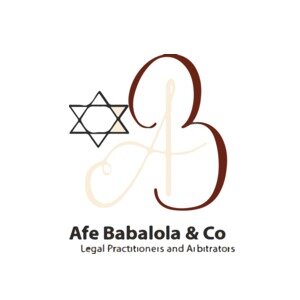Best Bankruptcy & Debt Lawyers in Ibadan
Share your needs with us, get contacted by law firms.
Free. Takes 2 min.
List of the best lawyers in Ibadan, Nigeria
About Bankruptcy & Debt Law in Ibadan, Nigeria
In Nigeria, bankruptcy and debt law revolves around the insolvency of individuals and organizations. When individuals are unable to pay back their debts, they may file for bankruptcy, allowing them some legal protection. Bankruptcy filings are governed by the Bankruptcy Act (CAP B2), Laws of the Federation of Nigeria (LFN) 2004, while Corporate insolvencies are governed by the Companies and Allied Matters Act (CAMA) 2020.
Why You May Need a Lawyer
If you are unable to repay your outstanding debts, discussing your situation with a bankruptcy and debt lawyer could help you evaluate your legal options. Should you decide to file for bankruptcy, a lawyer would guide you through the process, ensuring you meet all legal requirements and adequately protect your interests. Additionally, legal representation is beneficial when negotiating with creditors, litigating disputes, or navigating corporate insolvencies.
Local Laws Overview
In Nigeria, a debtor's insolvency is established by proving he/she is unable to repay debts as they fall due. The Bankruptcy Act and CAMA provide the legal framework for bankruptcy and insolvency proceedings. For corporate entities, CAMA covers issues like winding up procedures, appointing liquidators, and facilitating arrangement and compromise with creditors. On an individual level, bankruptcy proceedings may result in selling certain assets to satisfy debts, setting up a payment plan, or in some cases, discharging the debt entirely.
Frequently Asked Questions
What is the difference between insolvency and bankruptcy?
Insolvency is a financial condition where an individual or organization cannot meet their debts as they fall due. Bankruptcy, on the other hand, is a legal process that follows insolvency, where the debtor seeks court intervention for debt relief.
What assets can be protected during bankruptcy?
Exempt assets vary depending on the case, but often, personal items, tools for trade, and in some cases, residential homes, may be exempt from liquidation in a bankruptcy case.
What is the effect of bankruptcy on credit ratings?
Bankruptcy significantly impacts credit scores and stays on one’s credit report for many years, affecting their ability to secure loans in the future.
Can all debts be discharged through bankruptcy?
Not all debts can be wiped out in bankruptcy. Non-dischargeable debts often include student loans, tax debts, alimony, and child support.
Do I need a lawyer to file for bankruptcy?
While not compulsory, having a lawyer ensures you understand the complexities of the process, make informed decisions, and navigate the legal framework effectively.
Additional Resources
For more guidance on bankruptcy and debt law, you may refer to the following resources: The Bankruptcy Act (CAP B2), Laws of the Federation of Nigeria 2004 Companies and Allied Matters Act (CAMA) 2020 Nigeria’s Corporate Affairs Commission website Nigeria Bar Association website
Next Steps
If you need legal assistance in Bankruptcy & Debt, consider the following steps: 1. Assess your financial situation to determine whether bankruptcy is the best option for you. 2. Research a reputable legal professional specializing in bankruptcy and debt law. 3. Schedule a consultation to discuss your situation and determine your best course of action. 4. Comply with all legal and procedural requirements if you initiate bankruptcy proceedings.
Lawzana helps you find the best lawyers and law firms in Ibadan through a curated and pre-screened list of qualified legal professionals. Our platform offers rankings and detailed profiles of attorneys and law firms, allowing you to compare based on practice areas, including Bankruptcy & Debt, experience, and client feedback.
Each profile includes a description of the firm's areas of practice, client reviews, team members and partners, year of establishment, spoken languages, office locations, contact information, social media presence, and any published articles or resources. Most firms on our platform speak English and are experienced in both local and international legal matters.
Get a quote from top-rated law firms in Ibadan, Nigeria — quickly, securely, and without unnecessary hassle.
Disclaimer:
The information provided on this page is for general informational purposes only and does not constitute legal advice. While we strive to ensure the accuracy and relevance of the content, legal information may change over time, and interpretations of the law can vary. You should always consult with a qualified legal professional for advice specific to your situation.
We disclaim all liability for actions taken or not taken based on the content of this page. If you believe any information is incorrect or outdated, please contact us, and we will review and update it where appropriate.
Browse bankruptcy & debt law firms by service in Ibadan, Nigeria
Ibadan, Nigeria Attorneys in related practice areas.










